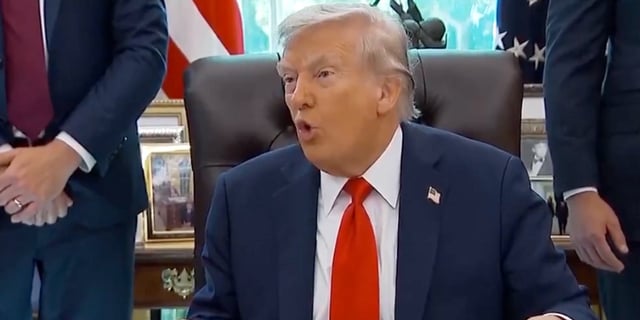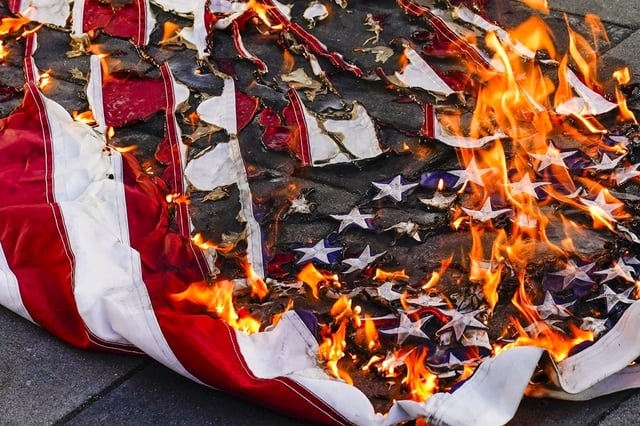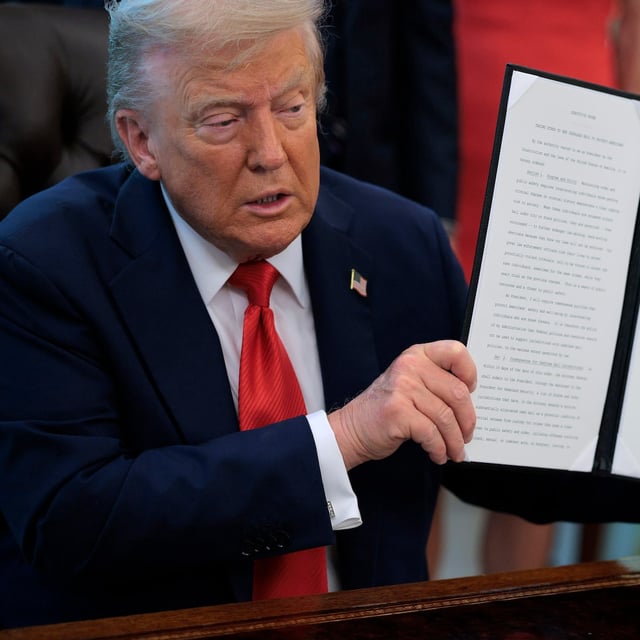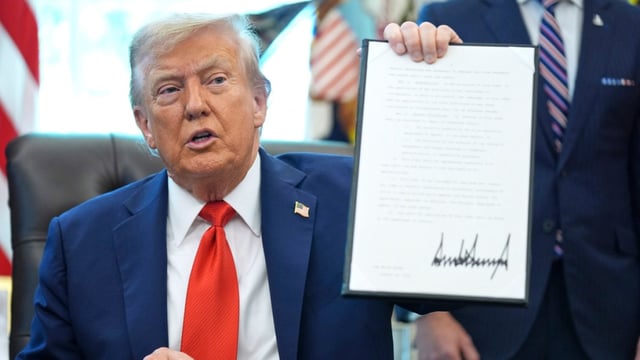Overview
- President Trump signed an executive order directing Attorney General Pam Bondi to prioritize prosecutions in cases where flag desecration coincides with other violations, such as violent crimes, property damage or open-burning rules.
- The directive instructs agencies to seek immigration penalties for noncitizens who desecrate the flag, including revoking visas or residency and pursuing removal where permitted by law.
- The White House says prosecutors may pursue litigation to narrow the scope of First Amendment protections, directly confronting Texas v. Johnson (1989) and U.S. v. Eichman (1990).
- Civil-liberties groups and several conservative commentators called the move unconstitutional, noting that presidents cannot override Supreme Court precedent or create new crimes by executive order.
- Hours after the order was signed, a person who burned a flag near the White House was arrested under park fire regulations, illustrating early enforcement under non-speech-related statutes.



